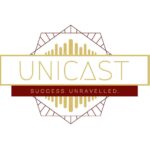
By Suhani Thandi, Analyst at Unicast Entertainment
Recently there has been a rise in debates for increasing transparency in the way science is conducted. This is not surprising as, historically, transparency has brought several benefits to the scientific community. On the flip side, greater transparency could threaten the intellectual property and ownership rights of people. Fostering a situation where scientists can benefit from the ease of access to others’ work without their intellectual property being jeopardized would require a tricky balance between transparency and rights protection. In her interview with Unicast Entertainment, Dr. Frida Polli, addresses the need for increased access to scientific information and offers a solution for doing so without compromising intellectual property rights.
Whether it is in the sale of a new drug, a certain research method, or simply the presentation of scientific findings, “transparency” refers to the openness with which people can access information. While certain legal measures in research processes currently require a degree of transparency, there has been debate to increase it further. Dr. Polli mentioned how the lack of transparency during the opioid crisis resulted in uncertainty revolving around the number of pills being circulated in certain regions. It may be argued that greater clarity about pill distribution could have prevented the crisis from reaching the extent that it did and thus transparency, in this case, could have dramatically improved the situation.

Transparency is also important for the replication of studies and/or research methods as scientists often build on the work of others to further their own studies. Naturally, greater collaboration brings greater outcomes, which is evidenced by several significant scientific advances that came from experts building on each other’s work – such as Galileo’s telescope that was built based on the work of Lippershey. One would expect to see greater transparency in the scientific realm with the widespread use of online journals and digital platforms as, contrary to print material, they do not come with space limitations. This would allow greater details of studies and data to be available. However, this is not necessarily the case as people do not want to risk experiencing an adverse result of greater transparency: the loss of intellectual property rights.
On the surface, increased transparency in scientific research seems like it would cultivate an ideal scientific world, but unfortunately the outcome is often not that straightforward. On one hand, when a person’s ideas and work is made more readily accessible to others, it is easier to make improvements or further the work. On the other hand, it also becomes easier for the credits of the work to be misassigned, especially if there is a lack of legal provisions to protect intellectual assets. Apart from the obvious personal and professional losses the person in question would incur, this would have detrimental effects on a much larger scale. Legal battles may ensue, companies could lose out on revenue generating opportunities, and significant resources may be wasted if intellectual property rights are mismanaged. Transparency is required even in the legal processes of securing patents and copyrights in order to reduce the possibility of confusion and inconsistencies. To avoid the undesired effects of transparency in science on property rights, it is essential to find a stable equilibrium between the two.
In her interview, Dr. Polli explains how her company, Pymetrics, finds and maintains the balance between adequate transparency and protection of intellectual property. Pymetrics’ solution is to arrange for an independent audit conducted by a third party that has complete freedom in terms of what they publish. This would enable them to view and understand the processes the company follows and thereafter freely communicate/publish what they choose- such as whether the company is following the practices they claim to. Such an exercise would help ensure unbiased checks and balances that both provides transparency and continues to protect the organization’s intellectual properties. This system may work efficiently for the most part but, as Dr. Polli points out, there may be situations where the auditors become corrupt and release biased reports that could significantly hinder, or even negate, the entire purpose of the system. In such a case, transparency would be under complete jeopardy and the third-party audit would likely prove to be fruitless. Therefore, it is important to take solutions about transparency with a grain of salt as this age-old issue is not easy to solve and may have different solutions depending on the people, company, and products involved.
Transparency in the scientific field is of extreme importance as it allows professionals to use, build on, and replicate the work and research methods of others, thus expanding the scope of the original work. On the other side of the coin, an increase in transparency could threaten intellectual property rights if substantial legal measures are not in place, which is why finding an appropriate balance is of great importance. Dr. Polli has suggested bringing in a neutral party to conduct an audit which is a great step in the right direction for addressing the issue at hand. This too, however, may bring problems of its own if the auditors are biased and could consequently jeopardize transparency even further. Increasing transparency without putting intellectual property rights at risk requires complex solutions as achieving an applicable equilibrium is trickier than what it appears on the surface. There is no “correct answer” but it is important for companies to find the balance that works for them.
To check out the full interview with Dr.Polli, visit https://www.youtube.com/watch?v=6GMDiyRgAaA today!
Exclusive Offer: Get £100 off your Summer Internship Experience at Amplify Trading by clicking here or using our unique discount code at the checkout: MSAmplifySummer2021. Participants graduate from the course with a Diploma from the London Institute of Banking & Finance. For more information about the course, click here.
References:
https://www.enago.com/academy/the-importance-of-scientific-transparency-and-reproducibility/
https://theconversation.com/research-transparency-5-questions-about-open-science-answered-76851
https://www.innovation-asset.com/blog/6-consequences-of-mismanaging-intellectual-property

Unicast Entertainment
Unicast Entertainment is a global digital platform celebrating and gaining insight into the success of remarkable individuals across the professional spectrum.